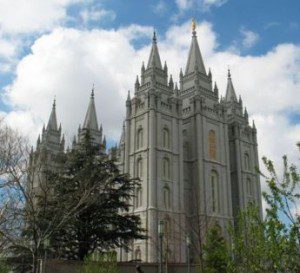It’s unfortunate, yet reality in America, that something that should be private and personal like an individual’s faith and relationship with God  should be evaluated, dissected, and judged when seeking public office. Pastor Robert Jeffress of the First Baptist Church in Dallas has called GOP presidential candidate and former Massachusetts governor Mitt Romney’s Mormon faith a “cult.”
should be evaluated, dissected, and judged when seeking public office. Pastor Robert Jeffress of the First Baptist Church in Dallas has called GOP presidential candidate and former Massachusetts governor Mitt Romney’s Mormon faith a “cult.”
At one time cult was defined broadly to include religious veneration and commitment to a particular person or persons. Based on this meaning it could include all religions. Today, however, cult has very negative connotations. It’s used in a derogatory manner to describe those who may worship differently, adhere to rituals that seem odd, and if you dig deeper shouldn’t be trusted.
The mega church pastor added that Gov. Romney “is not a Christian.” It’s a sweeping judgment in a nation that often professes to be founded on Judeo-Christian principles. Didn’t Jesus teach: “… how can you say to your brother, ‘Brother, let me remove the speck that is in your eye,’ when you yourself do not see the plank that is in your own eye? (Luke 6:42).”
In defending himself Pastor Jeffress said that Southern Baptists have long considered Mormonism a cult. He asks why this is now news. Although the Pastor does have a point since it has been a long standing position, he did remind America how quick Christians are to judge one another.
How can anyone know what’s in a person’s heart? Is it the place of one Christian to judge another who believes himself to be a faithful Christian? If and how Mitt Romney embraces Christianity shouldn’t be America’s business. Are Americans spiritual-busy bodies?
Perhaps there needs to be a larger discussion. What do Baptists, for example, think of former Pennsylvania U.S. Senator Rick Santorum’s Catholicism? Should it matter? Maybe the spotlight shouldn’t be on Mormonism, but on the Southern Baptist Convention and its positions on other faiths and religions.
Regularly, Americans hear that faith is under attack in this country. Many have allowed themselves to be conditioned to think that liberals, atheists, activist judges, and card carrying members of the American Civil Liberties Union (ACLU), among others, are the biggest threat to faith in America. Pastor Jeffress suggests otherwise.
It’s ironic that much church-state litigation doesn’t come from atheists, but rather Christians who can’t agree among themselves. In the most recent example the U.S. Supreme Court will mediate among Lutherans whether one has legal rights while working within a Lutheran organization. The litigant alleges that she had been terminated due to a disability. Lutherans suing Lutherans can’t be blamed on liberals.
As another example the high court was forced to weigh in several years ago on a controversy in Sante Fe where Jews, Catholics, and Mormons were being harassed by evangelical Christian students and school officials. It merits underscoring that the law suit wasn’t brought by an atheist. Incidentally, some of the landmark cases protecting religious rights were won by the ACLU.
Rev. Pat Robertson’s colorful comments over the years have often raised eyebrows. His most recent provocative comment this year endorses divorce if a spouse has Alzheimer’s. The widespread criticism can’t be attributed to secularists.
The focus of this discussion needs to shift. Who actually is marginalizing faith in America? Why does overall church attendance continue to decline? Why are a growing number of Americans apathetic about religion? These are some of the questions that would lend themselves to a much more thoughtful discussion about faith in America.
Paul is author of Crucifying Jesus and Secularizing America – the Republic of Faith without Wisdom.
(c) Paul Peter Jesep 2011











